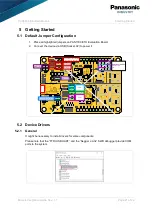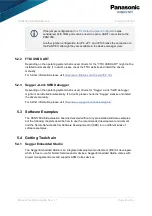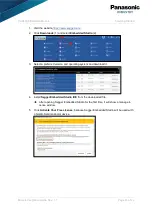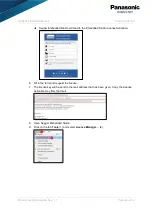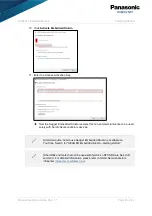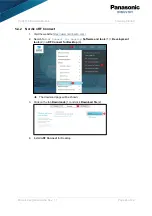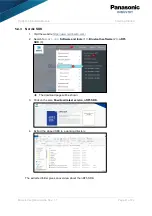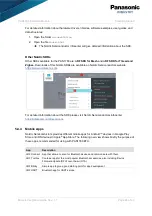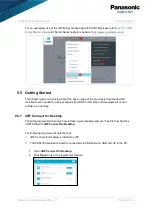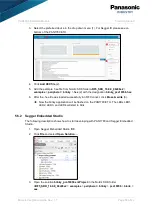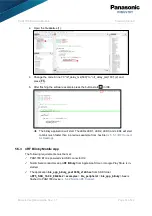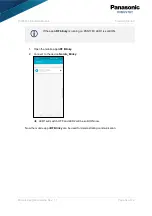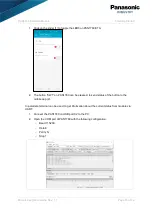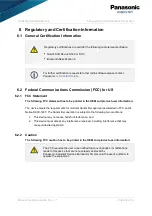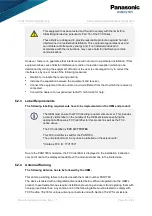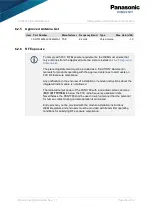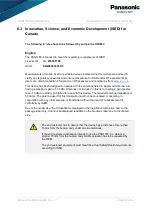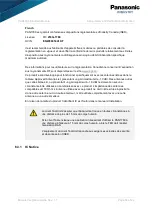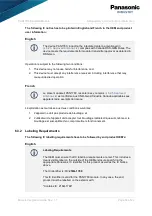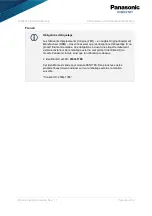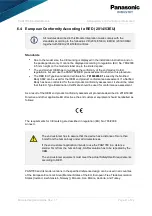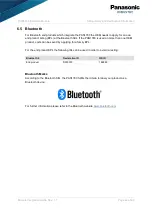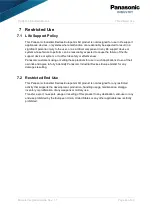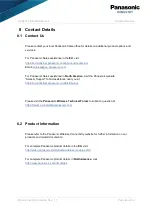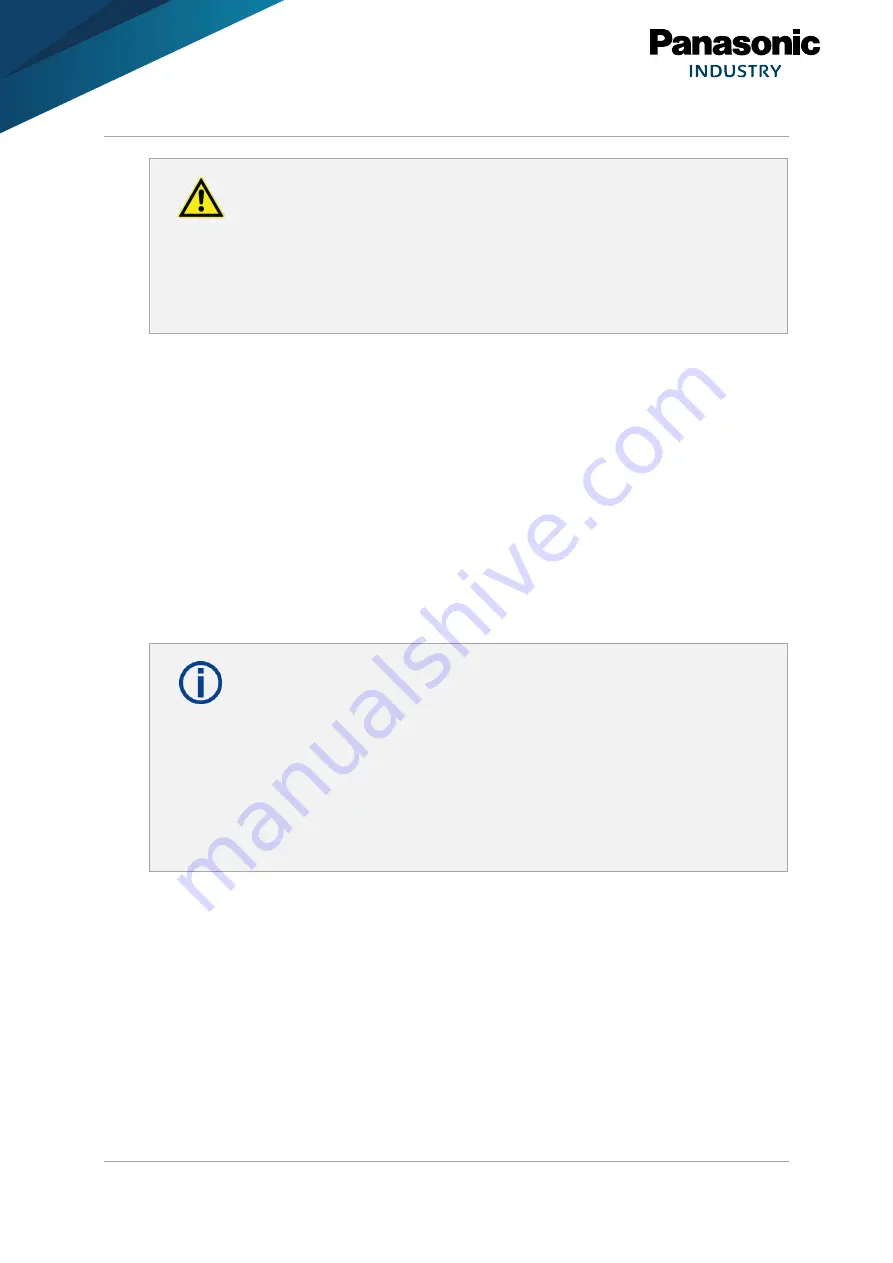
PAN1780 Bluetooth Module
6 Regulatory and Certification Information
Module Integration Guide Rev. 1.1
Page 35 of 44
This equipment has been tested and found to comply with the limits for a
Class B digital device, pursuant to Part 15 of the FCC Rules.
These limits are designed to provide reasonable protection against harmful
interference in a residential installation. This equipment generates uses and
can radiate radio frequency energy and, if not installed and used in
accordance with the instructions, may cause harmful interference to radio
communications.
However, there is no guarantee that interference will not occur in a particular installation. If this
equipment does cause harmful interference to radio or television reception (which can be
determined by turning the equipment off and on) the user is encouraged to try to correct the
interference by one or more of the following measures:
•
Reorient or relocate the receiving antenna,
•
Increase the separation between the equipment and receiver,
•
Connect the equipment into an outlet on a circuit different from that to which the receiver is
connected,
•
Consult the dealer or an experienced radio/TV technician for help.
6.2.3 Label Requirements
The following labelling requirements have to be implemented on the OEM end product:
The OEM must ensure that FCC labelling requirements are met. This includes
a clearly visible label on the outside of the OEM enclosure specifying the
appropriate Panasonic FCC identifier for this product as well as the FCC
notice above.
The FCC identifier is
FCC ID: T7V1780
.
This FCC identifier is valid for the PAN1780.
The end product must in any case be labelled on the exterior with:
"Contains FCC ID: T7V1780"
Due to the PAN1780 model size, the FCC identifier is displayed in the installation instruction
only and it cannot be displayed readable
on the module’s label due to the limited size.
6.2.4 Antenna Warning
The following Antenna has to be followed by the OEM:
This antenna warning refers to the device with the model number PAN1780.
The device is tested with a integrated
antenna listed below. When integrated into the OEM’s
product, these fixed antennas require installation preventing end users from replacing them with
non-approved antennas. Any antenna not in the following table must be tested to comply with
FCC Section 15.203 for unique antenna connectors and with Section 15.247 for emissions.

